Premise
Discussing the Inquisition is a challenging task, for two primary reasons.
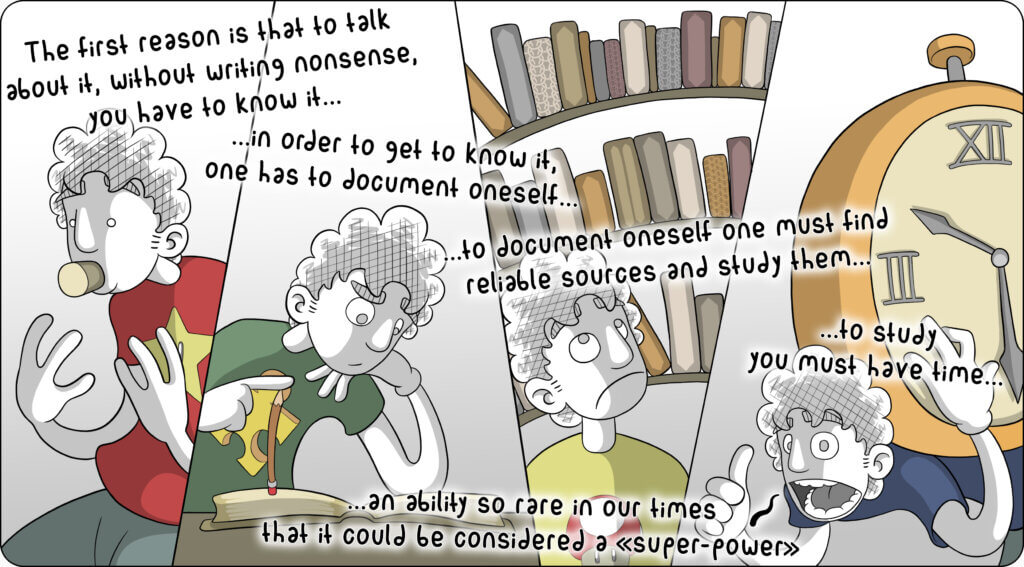
The second reason is that, being a person of pride, I am apprehensive — when discussing things I am less familiar with — about making a mistake and finding myself in an embarrassing situation, one of those moments when…
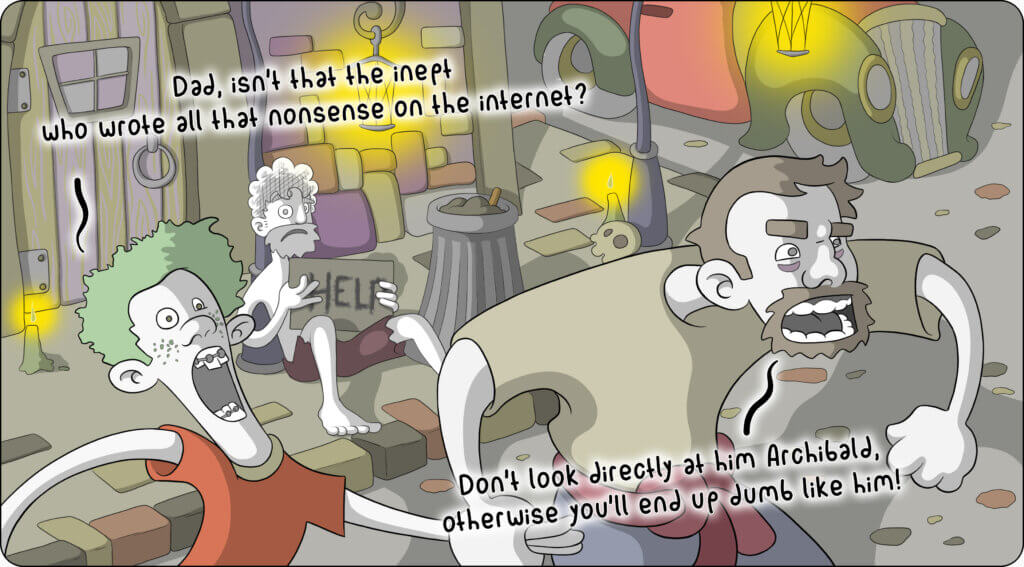
Indeed, a blog section dedicated to the Inquisition, witch hunts, and burnings… could have easily been omitted.
However, then emerged the Gunnery Sergeant Hartman within my conscience, who:
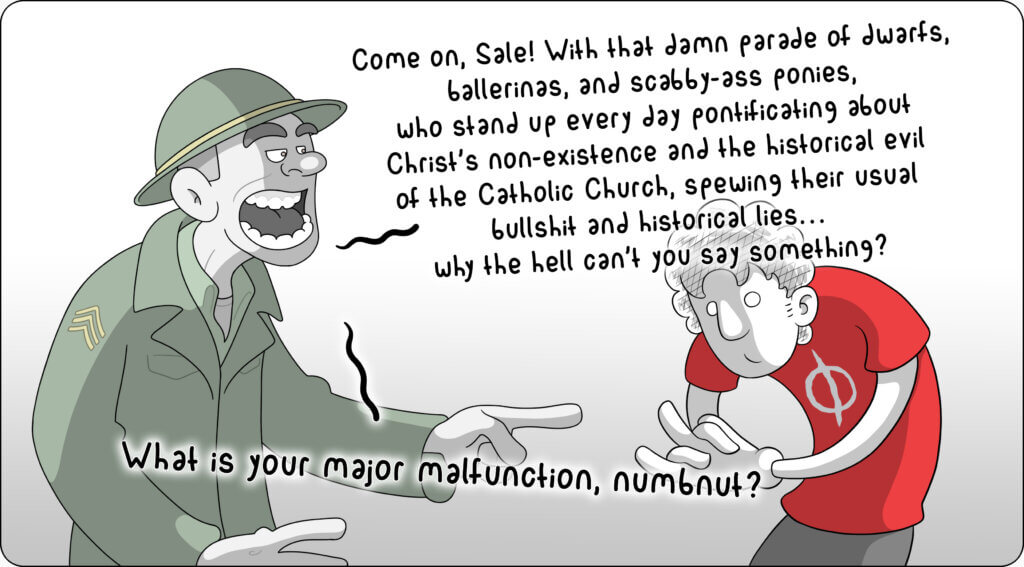
It’s true, I know little to nothing about these topics.
However, with a dash of curiosity (and a dose of tedious readings), I’ve discovered some interesting aspects…
And since (forgive my candor) these inquiries were made not so much for those of you who are reading, but primarily for my own sake, I made a concerted effort to avoid deceiving myself and refrained from recounting nonsense.
Therefore, I sought information from sources that were as reliable as possible…
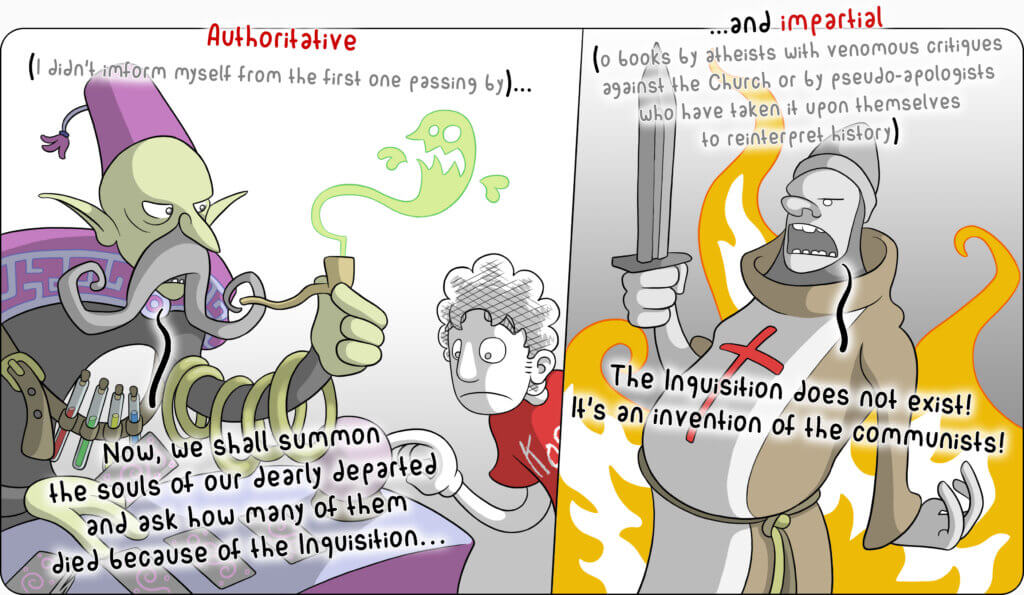
Aaanyway… before I put my foot in my mouth and start discussing these matters, today I would like to focus b that, in my opinion, are indispensable when addressing the Inquisition (and more broadly, the past and those who came before us).
1 • First: One cannot view the past through the lens of present-day categories
In a world where an enormous amount of information is readily accessible to everyone, there are times when we develop an attitude of condescension towards individuals from the past.
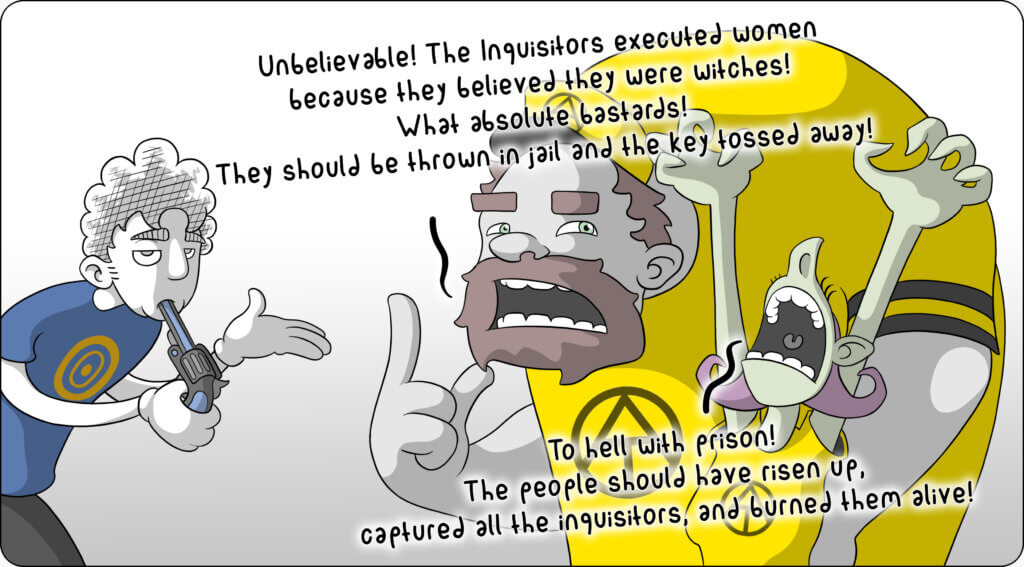
Clive Staples Lewis, the British writer and essayist, wrote:
The reason we do not execute witches is that we do not believe there are such things.
If we did – if we really thought that there were people going about who had sold themselves to the devil and received supernatural powers from him in return and were using these powers to kill their neighbours or drive them mad or bring bad weather – surely we would all agree that if anyone deserved the death penalty, then these filthy quislings did?
There is no difference of moral principle here: the difference is simply about matter of fact.
It may be a great advance in knowledge not to believe in witches: there is no moral advance in not executing them when you do not think they are there.
You would not call a man humane for ceasing to set mousetraps if he did so because he believed there were no mice in the house.
(CLIVE STAPLES LEWIS, Mere Christianity, Harper Collins, London 2012, pp.14-15)
In short, it is impossible to bring individuals who lived centuries ago to trial at the Nuremberg Tribunal. It is ahistorical, lacking in seriousness, and infantile.
2 • Second: One cannot judge a reality based on an anomaly or its misguided application…
Tasting a rotten apple doesn’t seem like a good method to help someone understand if they might like apples.
If you want to introduce your English friend to what pizza is like in Italy, you take them to a Neapolitan pizzeria, not to the Bangladeshi place down the street (*).
(*) (even though I really like the slice pizza from the Bangladeshi place down the street)
If you want to ignite someone’s passion for art, you take them:
- In a Gothic church;
- At the Uffizi Gallery;
- At the Taj Mahal in India;
- At the Hanging Temple in China;
- At the White Temple in Thailand…
…you don’t take them to see Cattelan’s banana or Piero Manzoni’s can of Artist’s Shit.
In Comedy Central‘s stand-up specials and on anticlerical Facebook groups, there is often a tendency to judge the Church based on its “edge cases”, exceptions, and distortions…
…just to give an example: it’s trendy to talk about the abuses of the inquisition courts.
Yes, they existed, there’s no denying it. But that’s not the point.
Starting from there to describe the Church of that era implies an ideological stance.
Intellectual honesty would instead suggest starting with the regular functioning of the inquisition processes to form judgments.
3 • Third: One must look at the past with humility
In my opinion, we should approach the past with humility, not arrogance.
With a desire to learn, not with the condescension of “wanting to explain” to our predecessors how they should have lived.
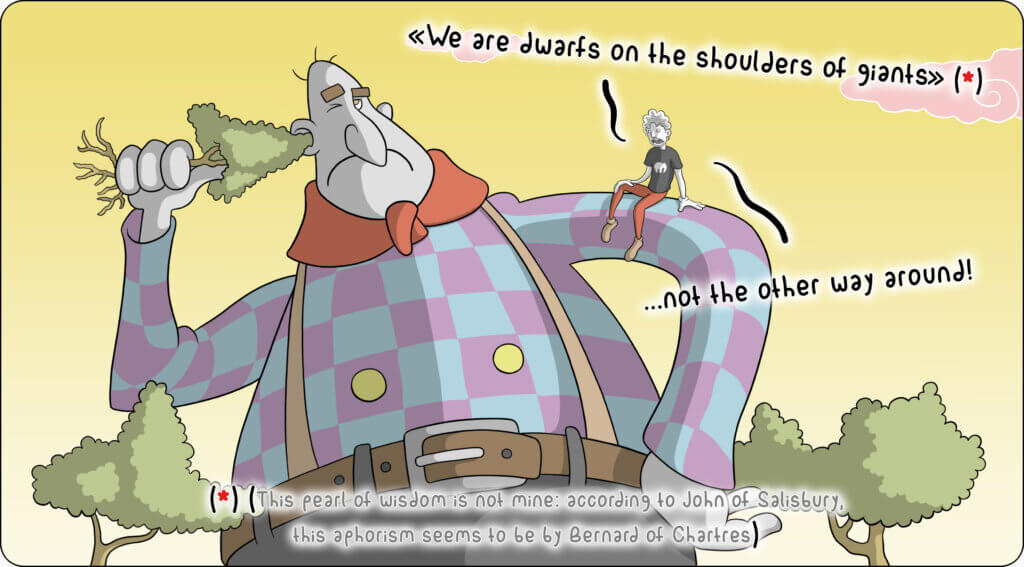
And even if we moderns feel “so much greater” than our predecessors, I believe that the conviction of having grown up does not give us permission to spit on our fathers.
Conclusions
I understand that the topic is delicate.
And complex.
And that I might be shooting myself in the foot by opening this Pandora’s Box.
In any case, the essence of this stream of words is not “I am soooooo right”.
But that, when you wake up at twenty-seven, you realize you know next to nothing about history, and have the desire to delve a bit deeper, there are means to do so, by researching in an honest manner.
sale
(Fall 2018)